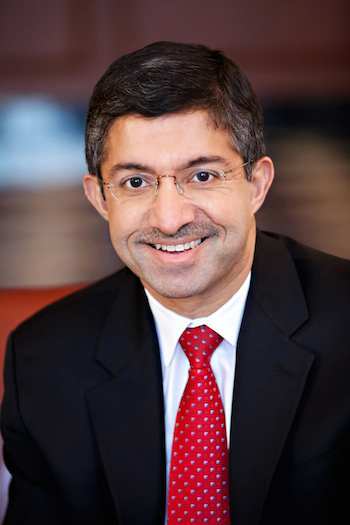After a pair of highly successful pilot runs, Harvard Business School is now opening its online program in business basics to students worldwide, including managers with up to ten years of work experience.
These latest changes could put the program in competition with more expensive Executive MBA programs which demand a greater time commitment from managers and executives who have not had the business basics or general management training. EMBA programs cover a lot more ground, of course, but Harvard’s imprimatur on this program of business basics could make it appealing to managers who otherwise would attend second-tier EMBA programs. What Harvard is doing could also alter the shape of the executive education market in coming years as the school builds on the success of a single online exec ed offering that featured innovation guru Clay Christensen.
All told, slightly more than 1,100 students have now taken the primer on the fundamentals of business called CORe (Credential of Readiness) program. In the first beta starting last June, the trio of courses–Business Analytics, Economics for Managers, and Financial Accounting–were open to only undergraduate students in colleges in Massachusetts and alumni. Some 600 students took the $1,500 two-month program. Harvard then tested the suite of courses out on 500 managers at nine different companies in a B-to-B experiment.
For the first time, HBS is now opening up the program–based on case studies and videos–to applicants worldwide, including adult learners and students already admitted to the school’s full-time, on-campus MBA program this fall. Initially, the program was designed largely for non-business undergraduates who needed the business basics to give them a leg up on the job market when they graduated from college.
MORE THAN 200 MANAGERS IN EIGHT COMPANIES HAVE ALSO TAKEN CLAY CHRISTENSEN’S ONLINE DISRUPTIVE STRATEGY COURSE
The school also said it is highly pleased with the response to the first executive education course by Christensen on the HBX platform. With online case studies, debates, reflections, team-based assignments, and cohort-wide discussions, Christensen’s Disruptive Strategy program requires two to three hours of work per week spread over four to eight weeks. HBS has priced the course at $1,500 per learner.
So far, the school has made Disruptive Strategy available to eight corporate customers with more than 200 learners and says it has nine more corporate commitments in hand which will bring the program to an additional 300 participants. Thus far, HBS has eschewed an open enrollment approach, preferring instead to sign up individual corporate clients who then make the course available to between 10 and 40 managers at a time. Each cohort is specific to one company.
“The result and the feedback have really been fantastic,” says Bharat N. Anand, faculty chair of HBX, the name of Harvard Business School’s online initiative. “What we are doing now is adding to that a portfolio of executive courses over the next few years designed to reach executives who simply don’t have the time to come to campus. They can use the online platform to apply the lessons to their own company and discuss challenges internally.”
The next courses in the HBX executive portfolio are expected to feature several other academic stars at the school, including strategy guru Michael Porter on the microeconomics of competitiveness, and entrepreneurship experts Bill Sahlman and Joe Lassiter on innovation and entrepreneurship.
HARVARD IS FINDING THAT AN ONLINE PROGRAM FOR UNDERGRADS HAS MUCH BROADER APPEAL
In the initial beta of CORe, Harvard discovered that the program attracted a much broader group of students than expected. “We positioned it as a program for Humanities and STEM (science, technology, engineering and math) majors,” explains Anand, who teaches one of the CORe courses. “We ended up getting roughly a third from the Humanities, a third STEM and another third from from economics, social science, and business undergraduates. That was the rough breakdown.”
Surprisingly, 20% of those who enrolled in CORe were graduate students, including students from medical and law schools, and even a PhD in natural science. Almost 20% of the students were international, and 40% were women. “When we opened up the website, we were thinking of only rising juniors and seniors, but we also opened it up to rising sophomores because that is the time when students are trying to get themselves in line for internships,” adds Anand.
Asked to grade how engaging the course materials were on a scale of one to five, with five being the highest grade, 80% of the first batch of students awarded a grade of four or five. On course quality, the approval number hit 86%, while the quality of the course instructors—all endowed professors who teach in Harvard’s full-time MBA program—won a four or five grade from 90% of the participants. “The results are very encouraging,” says Anand. “We are still in the early stages of this journey, but it is really exciting. We have high engagement from participants. We have an established revenue model and, most important, the program reflects who we are.”
OPENING THE PROGRAM UP TO SOME APPLICANTS IN THEIR MID-TO-LATE THIRTIES
HBS says it will now allow applicants anywhere in the world as old as the mid-to-late 30s to apply for start dates in February, April and June. The deadline for applications for the April 15th intake is March 25, while the deadline for the cohort that begins June 3rd will be May 13.“In the summer group, we restricted it to Massachusetts enrolled students and kids of alumni,” says Anand. “In the fall, we restricted it to B-to-B. Now we are opening it up and it is available to anyone anywhere, up to ten years out of undergraduate. We are gradually increasing the eligibility. There are a lot of career switchers who want to understand business better, even entrepreneurs who have run their own companies but now want to run their firms more systematically. The number of applications we received from people who are 13 or 15 years out of college was fascinating.”







Questions about this article? Email us or leave a comment below.